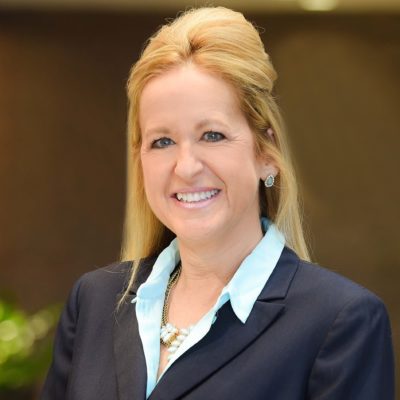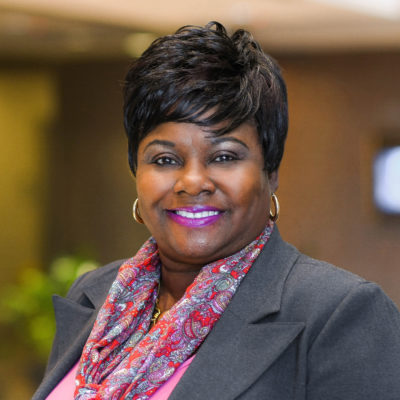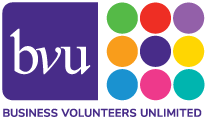A Five-Part Development Series for Nonprofit Leaders
Nonprofit Leadership Advancement Program
Take part in this powerful nonprofit leadership development program to understand what you can do to become a more effective leader in the nonprofit sector. Whether you are a current executive director or have plans to move into a more significant role, you will find this leadership training series helpful.
The Nonprofit Leadership Advancement Program was created after hearing from local foundations, nonprofit leaders, and board members about a need in the nonprofit community for leadership development and training. Nonprofit executives and leaders often lack access to high-level leadership programs developed for businesses. BVU partnered with Ratliff & Taylor, the largest full-service talent management consultancy in Ohio, to launch the program in 2018.
To learn more or apply, please reach out to Tricia Stevenson, Director of Leadership Development, at tstevenson@bvuvolunteers.org.
2024 Dates
Session 1: Leadership Communication and Conversations
February 2
8:30am-4:30pm
Session 2: Neuroscience, Emotional Intelligence & Nonprofit Leadership
February 23
8:30am-4:30pm
Session 3: Building Cohesive Teams: Five Functions of Beautifully Performing Teams
March 15
8:30am-4:30pm
Session 4: Strategic Thinking and Planning
April 12
8:30am-4:30pm
Session 5: Effective Board Leadership
April 26
8:30am-12:00pm
Location
Ratliff & Taylor
6450 Rockside Woods Blvd. South
Independence, Ohio 44131
Meet the Facilitators

Alison Arkin
Senior Vice President/ Practice Lead, Leadership Development - Ratliff & Taylor
Julie Clark
Vice President, Nonprofit Engagement - BVU
Velvet Landingham
Senior Leadership Development Consultant/Executive Coach - Ratliff & TaylorCurriculum
Participants will be part of a cohort of other nonprofit professionals, attending a series of five sessions that incorporates a confidential individual emotional intelligence assessment, and a team assessment based upon the ‘Five Functions of a Team’ Model.
Leadership Communication and Conversations
February 2, 2024 | 8:30am – 4:30pm
Our success in life is dictated by the quality of relationships we create. How much the more so for successful Nonprofit Leadership. Some leaders negotiate better quality outcomes than others do – they work with people rather than through people. Some leaders can hold deeper, more honest conversations that create a new level of connection and are able to transform people, situations and relationships. The nonprofit leaders who engage in high level communication, know themselves and have the ability to read others, ensure clarity over responsibility, define expectations and maintain high levels of accountability and performance. When leaders avoid important conversations – or, allow conversations to be hijacked – we let standards slip and give permission for unproductive behavior, stymied negotiations and mediocre performance. Leaders will:
- Utilize tenants of Emotional Intelligence to practice aligning words, emotions and body language through engagement exercises
- Explore six fundamental components of speech and identify them within the most common communication situations in the workplace
- Engage in a process of asking powerful (and different) questions as a foundational element of leadership and managing productive conversations
- Examine the Five Languages of Appreciation and apply its principles to the nonprofit work environment
Neuroscience, Emotional Intelligence & Nonprofit Leadership
February 23, 2024 | 8:30am – 4:30pm
Emotional Intelligence and Neuroscience develops a leader’s ability to understand and leverage their emotions, influence individuals and teams dealing with complex issues and dynamics, and sustain mutually beneficial relationships with a wide range of stakeholders. In addition, Nonprofit leaders have complex stakeholder groups to collaborate with and navigate their work. Understanding oneself and others becomes critical tools to move agendas, build great functioning teams, and develop the kind of trust-based relationships that grow great organizations. Leaders will:
- Complete the EQi – Emotional Quotient Inventory (one of the most highly used EI assessment instruments available) prior to the program and receive their results at the event.
- Learn cutting edge neuroscience ideas that can be immediately implemented in group and workplace settings
- Apply EI concepts to self -management, restraint, emotional agility and constructive engagement with team members and boards.
- Build an action plan to proactively address EI development needs.
Building Cohesive Teams: Five Functions of Beautifully Performing Teams
March 15, 2024 | 8:30am – 4:30pm
Learn techniques to engage any type of team and how to structure team processes for maximum team performance. At times, even the most talented teams slip into a funk or seem to “stall” on their performance level. Whether your team is your peer leadership team, your direct reports or your board of directors, you will be called upon to steer your team back on track. In fact, 80% of leaders experience some type of team failure and 74% believe their team’s operational excellence is the most important factor to meet organizational goals. Leaders will:
- Complete Team Assessment prior to attending this session
- Receive results of a team assessment completed prior to attending
- Learn to identify dysfunction and pin-point the cause
- Identify essential components of well-functioning teams and explore strategies to intervene and re-build the team for higher performance
- Work with strategies to instill trust and foster collaborative goal setting
Strategic Thinking and Planning
April 12, 2024 | 8:30am – 4:30pm
One of the most powerful leadership postures is the ability hold on to the essential elements of an organization’s values and history, be in the present to address the current issues of the day and to dream for a better future. Strategic thinking and planning give both content and structure to diagnostic, dreaming and execution processes. Learning how and when to mobilize stakeholders in this process is critical and all change efforts must be a shared responsibility to ensure success. Strategic thinking and planning help institutionalize continuous learning and reflection and allow leaders and organization develop agility, adaption skills and greater capacity to experiment to reach new goals. Leaders will:
- Investigate the definition of and interconnected nature of strategic thinking and planning
- Explore and play with a number of strategic thinking exercises with a focused goal
- Learn and experiment with a 7- step model of strategic planning which includes: Aspiration: Goal Setting, Continuity: Core Values of Organization, Logistics: Who, How, When, Data Mining: Collection & Analysis, Focus: Prioritizing Needs, Design: Action Planning and Sustaining: Re-invest to Eclipse the Current with the New
- Begin to identity a potential aspiration for strategic work within their organizations
Effective Board Leadership
April 26, 2024 | 8:30am – 12:00pm
This half-day session, led by Julie Clark, BVU’s Vice President, Nonprofit Engagement, is designed as an interactive workshop that addresses the role of board and staff leaders in guiding and shaping a board to advance the organization to achieve full potential. Topics typically covered include:
- The role of the board
- Best practices in governance (statement of expectations, accountability, board succession plan)
- Meeting management — what makes a good board and committee meeting; bad meeting
- Board communications – dashboards & consent agenda
- Succession Plan for Board Chair & board leaders
Program Fees
BVU MEMBERS: $1,650*
NONMEMBERS: $1,850*
*Thanks to support from our Community Foundation partners, most
Cleveland and Akron area nonprofits are eligible for a $750 subsidy.




